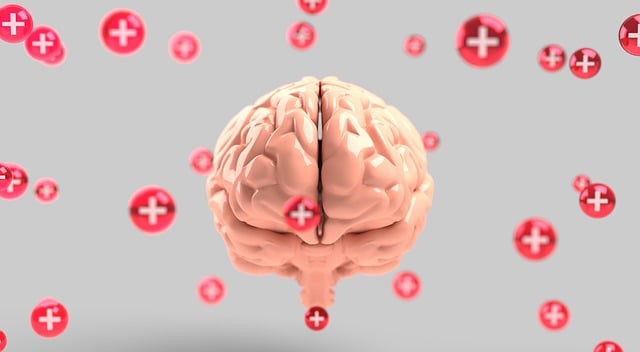Arvada French Speaking Therapy leverages structured data collection, statistical analysis, and cultural sensitivity for effective mental health treatment. By integrating qualitative and quantitative data, therapists tailor interventions, enhance care quality, and promote resilience. Statistical methods identify trends in patient outcomes, correlating therapies with emotional healing. Ethical considerations, including HIPAA compliance, protect client privacy while enabling valuable insights through digital records. Advanced data interpretation techniques personalize treatments, prevent burnout, and improve mental health service accessibility for French-speaking Arvada residents.
Mental health data analysis has emerged as a powerful tool in understanding patient outcomes, especially within specialized contexts like Arvada French Speaking Therapy. This article delves into the intricacies of mental health data collection and its significance in Arvada. We explore the role of statistical analysis in interpreting patient journeys, identifying hidden patterns, and enhancing treatment strategies. Furthermore, ethical considerations and privacy measures are discussed to ensure responsible handling of sensitive data. Through advanced interpretation techniques, we uncover valuable insights that can revolutionize care approaches in Arvada French Speaking Therapy.
- Understanding Mental Health Data Collection within Arvada French Speaking Therapy
- The Role of Statistical Analysis in Interpreting Patient Outcomes
- Identifying Patterns and Trends: Unlocking Insights from Clinical Records
- Ethical Considerations and Privacy Measures for Data Handling
- Enhancing Treatment Strategies through Advanced Data Interpretation Techniques
Understanding Mental Health Data Collection within Arvada French Speaking Therapy

In the context of Arvada French Speaking Therapy, understanding mental health data collection is paramount. This involves meticulously recording and categorizing client information, symptoms, treatment progress, and outcomes in a language that aligns with both clinical standards and cultural sensitivity. The therapy center ensures that all data reflects the diverse needs and experiences of its French-speaking clientele, fostering an inclusive environment. By adopting structured assessment tools and standardized protocols, therapists capture comprehensive insights into clients’ mental health states, including their coping skills development and self-care routine adoption.
Effective data collection in Arvada French Speaking Therapy extends beyond clinical notes. It incorporates regular feedback from clients about their experiences, satisfaction levels, and perceived improvements. This dual approach—combining qualitative and quantitative data—enables therapists to not only identify trends and patterns but also tailor interventions accordingly. Moreover, integrating concepts like burnout prevention strategies for healthcare providers into therapy plans enhances the overall quality of care, ensuring that both clients and therapists maintain resilience and well-being.
The Role of Statistical Analysis in Interpreting Patient Outcomes

In the realm of mental health data analysis, statistical methods play a pivotal role in interpreting patient outcomes, especially within contexts like Arvada French-speaking therapy services. These techniques allow professionals to make informed decisions based on quantitative data, ensuring that treatment plans are tailored to individual needs. By employing robust statistical analyses, therapists can identify patterns and trends within patient populations, leading to more effective interventions. For instance, analyzing response rates to various therapeutic approaches can guide practitioners in selecting the most suitable methods for different emotional intelligence profiles.
The process involves examining data collected from diverse sources, including patient assessments, treatment sessions, and follow-up surveys. Statistical analysis aids in understanding the impact of specific therapies on patients’ emotional healing processes. Through correlation analyses, researchers can uncover relationships between therapeutic interventions and improvements in mental health outcomes. Additionally, these methods can reveal insights into the interplay between mind over matter principles and patient demographics, further refining personalized treatment strategies for optimal results.
Identifying Patterns and Trends: Unlocking Insights from Clinical Records

In the realm of mental health data analysis, one of the most valuable aspects is identifying patterns and trends hidden within clinical records. These insights can provide a window into the complex world of patient experiences, treatment responses, and overall mental health dynamics. By utilizing advanced analytical techniques and incorporating cultural sensitivity in mental healthcare practice, such as those offered by Arvada French Speaking Therapy, professionals can uncover meaningful connections that might otherwise remain unseen. This process involves sifting through vast datasets to identify commonalities, outliers, and emerging trends, all of which contribute to a deeper understanding of the population’s mental health needs.
For instance, analyzing patient records over time may reveal specific factors that influence treatment outcomes, such as adherence to therapy or response to particular interventions. This knowledge is not only valuable for improving clinical practice but also for designing more effective Mental Health Education Programs. Moreover, recognizing cultural patterns can enhance the sensitivity and effectiveness of care, fostering a sense of belonging and trust among diverse patient populations. By integrating these insights, mental health professionals can ensure that their practices are tailored to meet the unique needs of each individual, ultimately promoting positive thinking and holistic well-being.
Ethical Considerations and Privacy Measures for Data Handling

In the realm of mental health data analysis, ethical considerations and privacy measures are paramount, especially when dealing with sensitive information from clients like those seeking Arvada French Speaking Therapy. As technology advances, digital records and analytics offer invaluable insights for improving treatment plans. However, they also pose significant challenges regarding confidentiality and security. It’s crucial to ensure that all data handling processes comply with strict ethical standards and privacy laws, such as HIPAA in the US. This includes anonymizing patient information where possible, obtaining informed consent, and implementing robust cybersecurity measures to safeguard against unauthorized access or breaches.
Protecting client privacy is not just a legal requirement but also fosters trust and encourages open communication. By integrating empathy-building strategies and promoting self-esteem improvement techniques into data analysis practices, mental health professionals can create an environment of care and support. For instance, using analytics to identify trends in burnout prevention among French-speaking communities in Arvada can inform tailored interventions that respect cultural nuances while maintaining the highest privacy standards.
Enhancing Treatment Strategies through Advanced Data Interpretation Techniques

In today’s digital era, advanced data interpretation techniques are revolutionizing mental health care, particularly in Arvada French-speaking therapy contexts. By harnessing the power of sophisticated analytics, therapists and healthcare professionals can gain deeper insights into patient profiles, treatment effectiveness, and emerging trends within their populations. This enables them to enhance treatment strategies tailored to individual needs, fostering resilience building and burnout prevention among patients.
Through data-driven decision making, public awareness campaigns development becomes more targeted and effective. For instance, analyzing patient feedback and outcomes can help identify specific challenges faced by French-speaking communities in Arvada. Consequently, therapists can collaborate with community leaders to design interventions that address these unique needs, ultimately improving mental health services accessibility and quality for all.
Mental health data analysis is a powerful tool that, when applied thoughtfully, can significantly enhance therapeutic outcomes. As demonstrated by practices like Arvada French Speaking Therapy, understanding and interpreting patient data through statistical methods allows for the identification of patterns and trends that guide more effective treatment strategies. By balancing ethical considerations and implementing robust privacy measures, mental health professionals can harness the potential of advanced data interpretation techniques to better serve their patients. This comprehensive approach ensures that both patient confidentiality is maintained and insights derived from data contribute to improved mental wellness outcomes.














